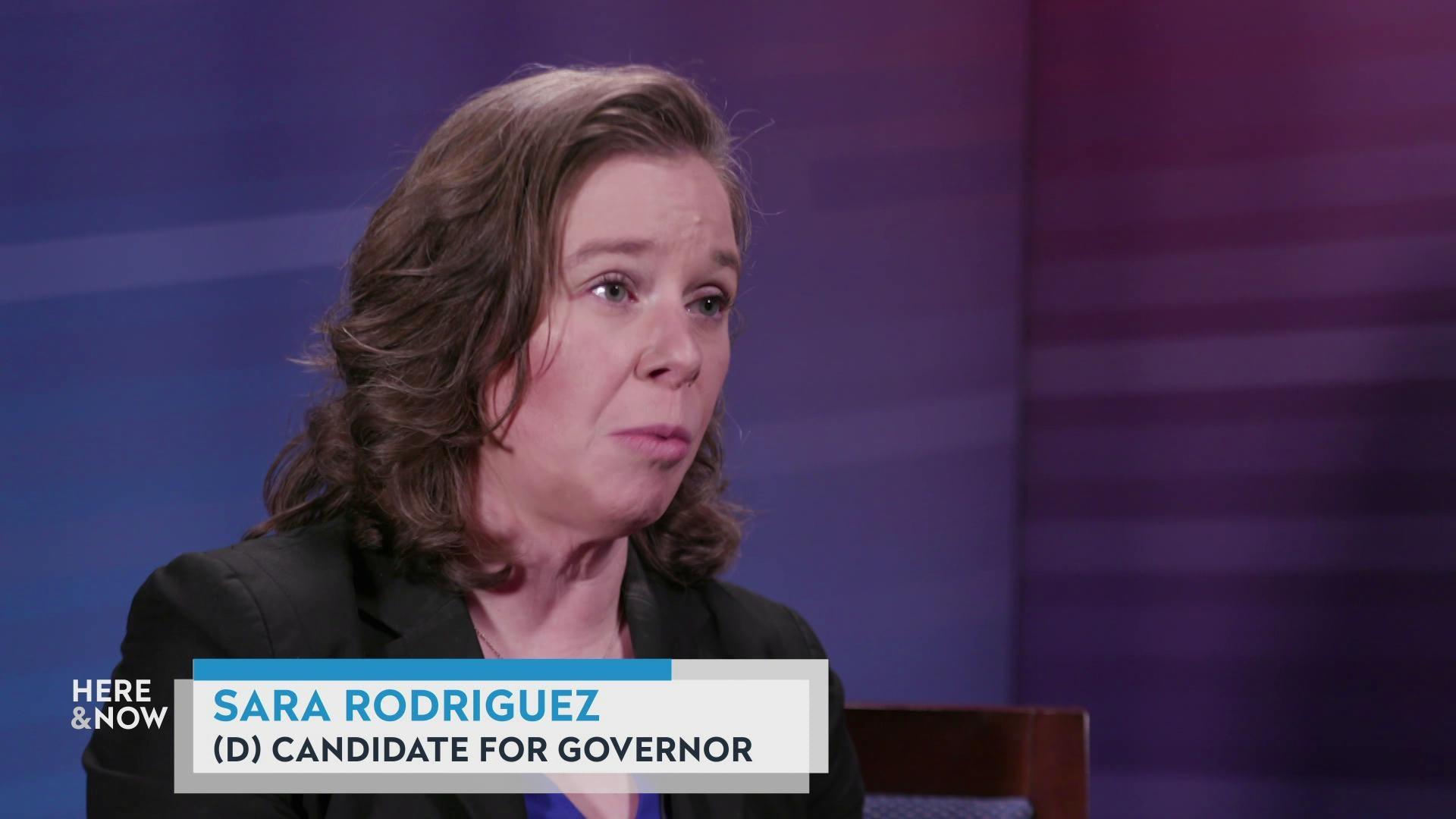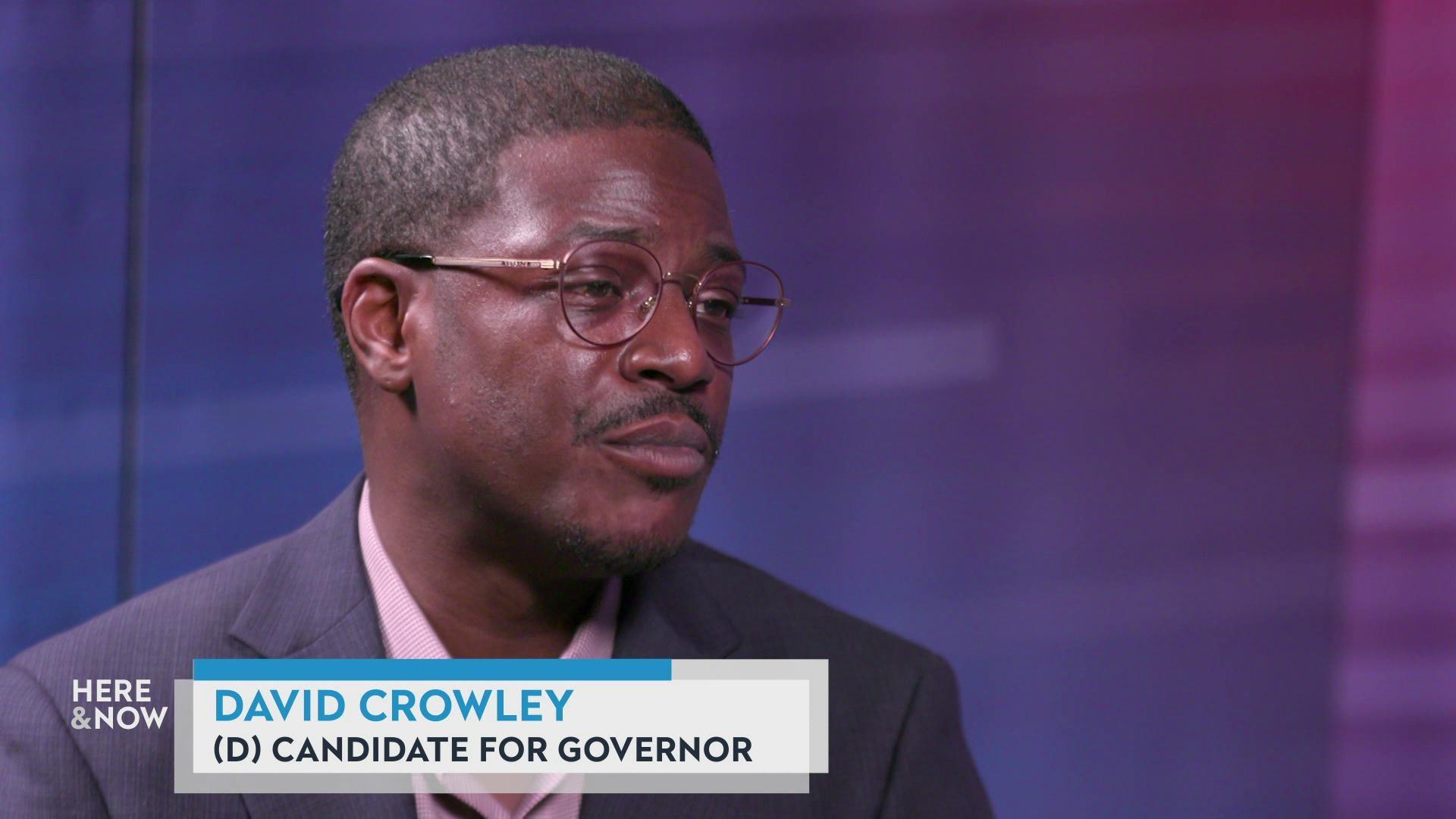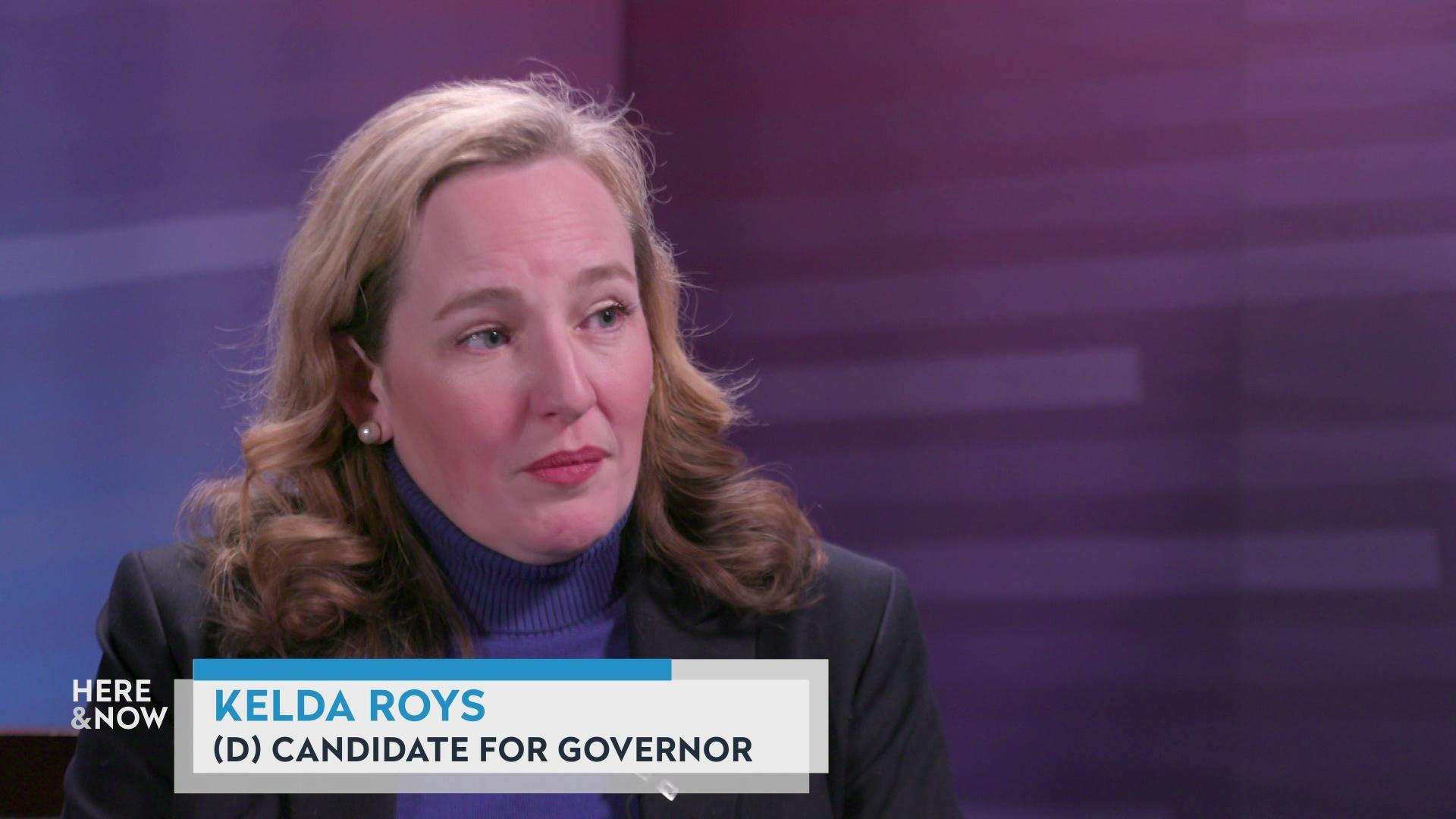Zac Schultz:
The president’s visit to Wisconsin came the same week a new poll showed his approval ratings in the state have gone down. Here to talk about those numbers is the director of the Marquette Law School poll, Charles Franklin. Thanks for being here.
Charles Franklin:
Good to be here. Thanks.
Zac Schultz:
Let’s start with President Obama’s approval ratings. They’ve slipped about five points since last October. Is it fair to draw a straight line from there to the Affordable Care Act and the drop in those numbers?
Charles Franklin:
The combination of timing I think is pretty clear. You see that here in our poll, but you also it in national polling. The dip in Obama approval comes just as the problems with the roll-out of Affordable Care does. Right now our reading for Obama is the lowest it’s been since May of 2012.
Zac Schultz:
That’s quite a while.
Charles Franklin:
It is.
Zac Schultz:
Is it likely that many of the people in your poll that had a decrease in approval for Obamacare actually had firsthand experience with it?
Charles Franklin:
Probably not, in fact. Wisconsin covers a high percentage of the public. It’s also unclear, with the shifting deadlines for BadgerCare enrollment and shifting people from BadgerCare to the Affordable Care exchanges, it’s unclear how many people would have been in that group. I think instead, we’re seeing largely a generalized reaction to what’s going on, as well as some personal experience, certainly.
Zac Schultz:
Now, the president, in his State of the Union Address, made a big deal talking about minimum wage and income inequality. He actually has quite a bit of support for minimum wage and raising it in Wisconsin, 62% support that.
Charles Franklin:
Not only do 62% support the minimum wage, but that was after we reminded them of the counter argument that raising the minimum wage could reduce jobs, at least according to some people. So it is a 62% even in the face of the counter argument.
Zac Schultz:
But it’s safe to say that the minimum wage in Wisconsin will not be going up with Governor Walker in charge. And speaking of him, he’s seen an uptick in approval ratings since last fall.
Charles Franklin:
That’s right, up a couple of points from 49%, I believe, to 51% approval. But his disapproval number also ticked down a little more than that. And so this is a governor who has averaged 49.9 over the last two years. So now he’s at 51, a little bit higher. But his average disapproval has run around 44% and he dipped down to about 42%. So a pretty good week coming after a week of good news for him as well.
Zac Schultz:
And a budget surplus will do that.
Charles Franklin:
It absolutely will. And we have an item that asks about how people see the state budget. 49% say better than a few years ago, only 20% say worse than a few years ago. So the public is largely perceiving the state budget as being in better shape than it was.
Zac Schultz:
Now, along with getting over that 50% approval hump, Governor Walker also increased his lead over the presumed Democratic challenger, Mary Burke.
Charles Franklin:
Right. In October, the first time we polled on Burke because it was right after she had declared her candidacy, Governor Walker held a two-point lead. That increased to a six-point lead this time. Interestingly, the governor’s support stayed at 47% in both polls, but Burke's support went from 45% to 41. This is still a time when people are learning who she is.
Zac Schultz:
That’s the very interesting thing because the number of people who don’t recognize her name stayed the same.
Charles Franklin:
And a phenomenal 70% who don’t recognize her or don’t know enough to have an opinion about her. At 70% is not shockingly high for a first-time statewide candidate this far out from an election. But it certainly shows how much the public still needs to learn about her before they can start evaluating her on her own terms as opposed to projecting partisan positions and based on that rather than substance about her particularly.
Zac Schultz:
Now, the big news with Mary Burke this week was the fact that she didn’t appear with President Obama in Waukesha. She claimed that she had prior campaigning events on the other side of the state. Republicans are saying she doesn’t want to be tied to him. This poll brings a lot of those numbers to the surface.
Charles Franklin:
It certainly does. You know, this far out from an election it’s a little too quick to judge that where we are today has big implications for the fall. But having said that, President Obama down, health care reform down. On the other hand, some policy issues that we mentioned, like minimum wage, but some other issues as well, seeing the tax cuts benefit the wealthy rather than the middle class or the poor. Those are things that have Democratic advantages. So I think the bottom line of this week’s poll is a little bit of shift in the governor’s favor and good news for him about the state being headed in the right direction. But some policy differences that still divide us and tilt more in a Democratic direction. So a mixed picture going into the year.
Zac Schultz:
And one of the things I find fascinating about that 70% margin is in politics, they say, if you don’t define yourself, your opponent will. The fund-raising numbers just came out that showed Governor Walker has a huge advantage, $4.6 million cash on hand compared to Burke’s $1.3. What kind of time line does she have to really boost her name ID in a positive way?
Charles Franklin:
That will be one of the interesting things to watch this year. Under normal circumstances I don’t think we’d expect to see television ads being run until sometime in the mid to late summer, especially without a Democratic gubernatorial primary. But there’s so much pressure for her to define herself and for Republicans to define her negatively. We may see a lot of pressure to move that advertising schedule up. Or for outside groups, independent groups, to come in and do their own advertising. So we’ll wait and see when that deluge of advertising hits, but I wouldn’t be surprised to see it earlier than normal.
Zac Schultz:
That’s just what Wisconsin viewers want to hear is more advertising earlier, especially negative advertising.
Charles Franklin:
Stay tuned, folks, because it’s going to be a lot of fun.
Zac Schultz:
Very quickly, when can we see some more numbers in the future?
Charles Franklin:
Probably a couple months, because until the campaign ramps up, you’re really not catching substantive movement from poll to poll. Once the campaign gets rolling we’ll be doing very regular polling.
Zac Schultz:
All right. Professor Charles Franklin, thank you very much.
Charles Franklin:
Thank you.
Search Episodes
News Stories from PBS Wisconsin

Donate to sign up. Activate and sign in to Passport. It's that easy to help PBS Wisconsin serve your community through media that educates, inspires, and entertains.
Make your membership gift today
Only for new users: Activate Passport using your code or email address
Already a member?
Look up my account
Need some help? Go to FAQ or visit PBS Passport Help
Need help accessing PBS Wisconsin anywhere?

Online Access | Platform & Device Access | Cable or Satellite Access | Over-The-Air Access
Visit Access Guide
Need help accessing PBS Wisconsin anywhere?

Visit Our
Live TV Access Guide
Online AccessPlatform & Device Access
Cable or Satellite Access
Over-The-Air Access
Visit Access Guide
 Passport
Passport


















Follow Us